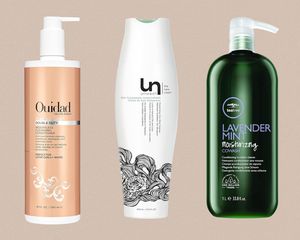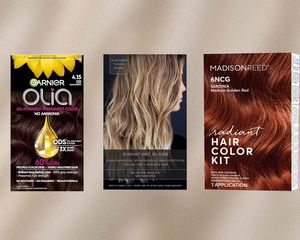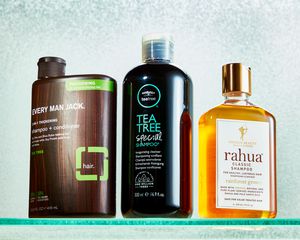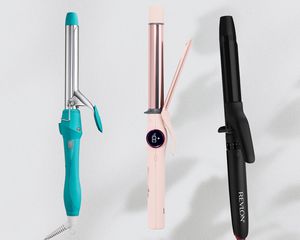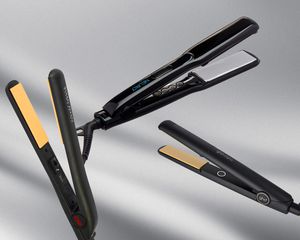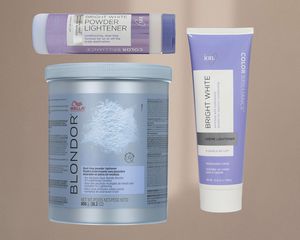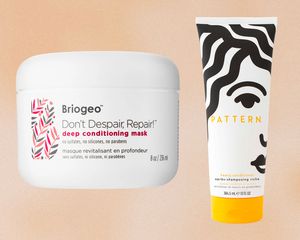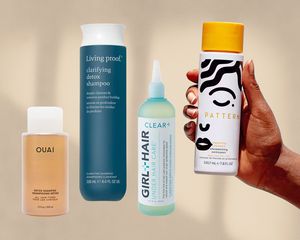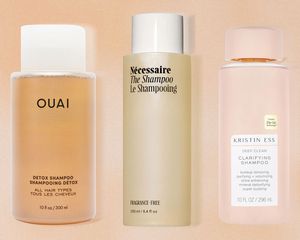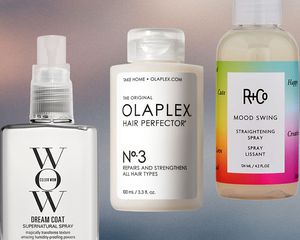:max_bytes(150000):strip_icc()/326381525_211584311280364_4961378456297907984_n-2cabdea9aeae48c9a95a764452063ae0.jpg)
@freshlengths / Instagram
If you find that your hair gets too dry when it's wash day, then co-washing is the absolute dream—especially if you have naturally coarse and curly hair. Co-washing, for those uninitiated, is when you use a creamy conditioning hair cleanser (also known as a "cleansing conditioner") to help keep your hair healthy and hydrated instead of dry and stripped.
Ready to learn more? We've tapped senior stylist Mia Emilio of Devachan Salon, stylist and Oyin Handmade founder Jamyla Bennu, and trichologist Sophia Emmanuel to give us all the tea on co-washing. Keep scrolling to read more!
Meet the Expert
- Sophia Emmanuel is an IAT-Certified Trichologist and licensed cosmetologist based in New York. She owns and operates the Crown Worthy beauty salon in New York City.
- Mia Emilio is the master stylist at Devachan Salon in NYC. She focuses on enhancing hair's natural texture and empowering women to embrace their curls.
- Jamyla Bennu is the creator of natural haircare line Oyin Handmade. The company is located in Baltimore, Maryland, and focuses on embracing natural hair texture.
What Is Co-Washing?
"A co-wash is the use of a specially formulated cream cleanser to remove buildup and cleanse the hair without the lathering or harsh ingredients, such as sulfates or parabens, typically used in shampoos," explains Bennu. "Co-washing is using conditioner to wash and cleanse your hair," says Emilio.
The Benefits of Co-Washing
According to Emilio, "Many people choose to co-wash because of the benefits of ditching shampoo, which is loaded with sulfates that strip curly hair of natural oils and can create frizz, dryness, and possible breakage. When you co-wash, you're scrubbing your scalp with conditioner as if it were shampoo. You're still cleaning the scalp to remove any dirt or residue because of the friction of your scrubbing. The main benefit is that you'll have really hydrated your hair during the cleansing process."
The process is especially good for those with "textured and natural hair, because it does not strip hair and scalp of natural oils, so your hair remains stronger and healthier with better moisture retention and less breakage," notes Bennu.
The Drawbacks of Co-Washing
While co-washing can be game-changing for those with thick, coarse curls, there can be downsides, the number one being the risk of product buildup on the scalp. This can cause scalp itchiness and irritation, as well as an oily and/or flat appearance to the hair. It's a good idea to counteract this with a scalp scrub or a product like DevaCurl Buildup Buster Micellar Water Cleansing Serum about once a week, depending on how often you wash your hair.
How to Co-Wash Natural Hair
- Apply the first round of conditioner.
- Scrub the scalp. "Remember the friction and scrubbing motion is what's removing dirt and grime from your scalp. Without friction, you're not cleaning anything," Emilio advises.
- Rinse the hair completely.
- Apply a second round of conditioner. "Start at your ends and work your way up to the mid-shaft of the hair," says Emilio. "This is to detangle but also to condition your strands; this round of conditioner does not need to be applied to your scalp."
- Rinse until no product remains on the hair.
- Repeat two to three times per week. "Some curl types can go a little longer without co-washing, and some curl types co-wash daily," says Emilio. "If your hair is highly dehydrated, more co-washing is better than less. Wetting and conditioning your hair won't harm it. The old wives' tale of not wetting your hair daily is really because of the negative effects of using shampoo daily."
Co-Wash vs. Conditioner: What’s the Difference?
Co-washing and conditioning are similar, but not identical. "Conditioning is about moisture, detangling, and pliability," Bennu explains. "Protein-rich conditioners are also about strengthening or repairing damage. Cleansing conditioners have special cleansing ingredients that gently cleanse and remove product buildup, leaving you with a soft and clean feeling. It's also a huge time-saver because you're cleansing and conditioning in one step."
So, while a co-wash can replace a conditioner in your routine, you can't co-wash with any old conditioner or you'll run the risk of not properly cleansing the hair, which may result in product buildup, scalp discomfort, and general greasiness. Look for products explicitly labeled as cleansing conditioners or co-washes, such as Hairstory's New Wash.
Co-Wash vs. Shampoo: What's the Difference?
As we mentioned earlier, a co-wash is a creamy cleansing product that could be considered an all-in-one conditioner and shampoo, whereas as shampoo is a specifically formulated product designed to cleanse your scalp and hair from oil, dirt, and sweat. To put it simply, co-washes are for cleansing and conditioning, while shampoos are designed for a deep clean. If you find that your hair is becoming dull, limp, or you're encountering scalp issues from only using co-washes, it could be a good idea to introduce a shampoo once a week to ensure your scalp and hair are truly clean.
Who Shouldn't Use a Co-Wash
Co-washing is not recommended for people who have flaky scalp conditions such as dandruff, psoriasis, or seborrheic dermatitis. "These scalp conditions worsen when co-wash products are used instead of shampoo," Emmanuel says. "The scalp becomes severely clogged because the cleansing ingredients in the co-wash product are not enough to break the flakes or excess oil down and remove them.
The Takeaway
If your natural hair tends to feel dry and neglected after wash day, that's a good indicator you should be using a co-wash instead of a traditional shampoo. Co-washes are absent of ingredients like sulfates that are often associated with dry hair, and are usually recommended for those with curly and coily hair that experience extra dryness on the ends of the hair.

